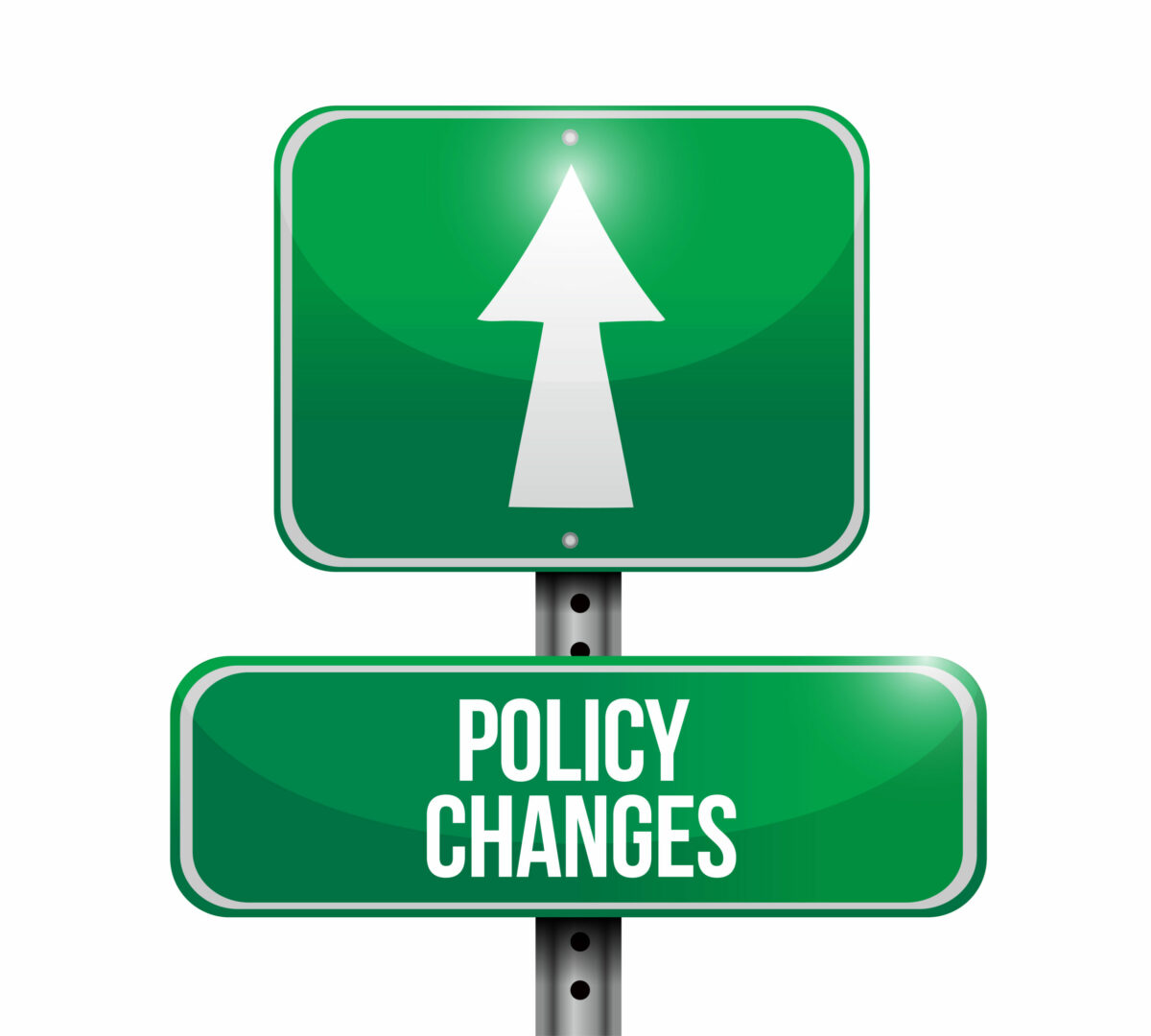“America’s global competitors are forging ahead with significant investments in AI, and we can only rival their effort if private capital is brought to bear.” – C4IP report
 On July 11, the Council for Innovation Promotion (C4IP) released a policy report advocating for a pro-innovation legislative and administrative agenda to counteract a series of shocks to the U.S. patent system over the past two decades. This pro-innovation agenda has the direct support of several C4IP members who formerly held high-ranking government positions and are now calling on the federal government to correct several areas of patent law that have improperly tilted the playing field in favor of corporate infringers and foreign counterfeiters.
On July 11, the Council for Innovation Promotion (C4IP) released a policy report advocating for a pro-innovation legislative and administrative agenda to counteract a series of shocks to the U.S. patent system over the past two decades. This pro-innovation agenda has the direct support of several C4IP members who formerly held high-ranking government positions and are now calling on the federal government to correct several areas of patent law that have improperly tilted the playing field in favor of corporate infringers and foreign counterfeiters.
Restoration of Traditional Patent Eligibility Standards Among Top Legislative Priorities
Reaffirm and Refine: A Government Agenda for Intellectual Property was developed with input from several IP thought leaders, including Former U.S. Patent and Trademark Office (USPTO) Directors David Kappos and Andrei Iancu; Frank Cullen, former VP of U.S. Policy for the U.S. Chamber of Commerce’s Global Innovation Policy Center; and Jamie Simpson, former Chief Counsel for the House IP Subcommittee. The bulk of the report offers a legislative agenda for the 118th Congress before concluding with a few action items for the Biden Administration and federal agencies.
Several reform agenda items proposed by the C4IP report aim to restore Congress’ role in shaping patent law by reining in judicial interpretation of patent statutes. C4IP unequivocally supports passage of the Patent Eligibility Restoration Act (PERA), which was recently introduced by U.S. Senators Thom Tillis (R-NC) and Chris Coons (D-DE). PERA would eliminate the line of U.S. Supreme Court cases starting with Bilski v. Kappos (2010) that have greatly expanded judicial exceptions to subject matter patentability with chaotic results. While there is no present legislation pending to restore the presumption of irreparable harm for granting injunctive relief on infringed patent claims, C4IP also encouraged Congress to abrogate eBay v. MercExchange (2006) to restore patent owners’ ability to control the use of their inventions.
DMCA Safe Harbors, FTC Non-Compete Rule Deserve Congressional Response
Other legislative efforts supported by C4IP would further improve certainty in patent rights necessary for increased business investment by preventing validity challenges filed to harass patent owners rather than press a meritorious validity argument. C4IP urged Congress to pass the PREVAIL Act, which would create standing requirements for petitioners challenging validity at the Patent Trial and Appeal Board (PTAB). Another Tillis and Coons bill, the PREVAIL Act would also limit opportunities for parties to raise multiple validity challenges against the same patent and harmonize the PTAB’s claim construction standard with U.S. district court.
While the enjoyment of quiet title in patent rights is critical to U.S. economic success, other areas of U.S. intellectual property law also require Congressional intervention. C4IP’s report indicates concerns with the Federal Trade Commission’s (FTC) announcement this January that the agency had proposed a rule banning employers from using non-compete agreements. While trade secret law offers companies some ability to prevent former executives from misappropriating confidential business information at a new job, “[w]hen applied to highly skilled, highly compensated executives, enforcement of trade secret laws is tantamount to closing the barn door after the livestock has run off.” The modernization of the Section 512 safe harbor under the Digital Millennium Copyright Act (DMCA), which has proven detrimental to copyright owners in the context of illegal streaming, and returning user fees to the USPTO are other action items Congress needs to consider.
In terms of what Congress shouldn’t do, C4IP advocates that Congress should not follow the lead of the European Union in drafting legislation to interfere with markets involving standard-essential patents (SEPs). It should also avoid passing what C4IP refers to as “short-sighted, anti-IP legislation” like the Affordable Prescriptions for Patients Act.
Establishing AI Guidance Under IP Law Would Help U.S. Lead Valuable Sector
Although the Biden Administration has not appeared too friendly to IP rightsholders, C4IP urges the Executive Branch to stand firm against calls for the government to use supposed rights under the Bayh-Dole Act to impact negotiations on patents covering federally-funded inventions. The IP coalition also opposes more recent efforts to improperly invoke the government use provisions in 28 U.S.C. § 1498, which some have argued should enable production of generic pharmaceuticals for at least Medicare and Medicaid recipients. Further, the Biden Administration shouldn’t support expansion of the waiver of international IP obligations under the TRIPS Agreement to COVID-19 treatments and diagnostics.
C4IP also believes that the nation’s IP agencies should take the lead in providing guidance on artificial intelligence (AI) and its impact on IP laws. Clarifying inventorship requirements and patent eligibility for AI inventions would create clear policy surrounding perhaps the most valuable area of technological development during this century. The report explained: “America’s global competitors are forging ahead with significant investments in AI, and we can only rival their effort if private capital is brought to bear. That will not happen without the strong investment incentive provided by robust, clear, and reliable IP rights.”
Image Source: Deposit Photos
Image ID: 29893499
Author: alexmillos

![[IPWatchdog Logo]](https://ipwatchdog.com/wp-content/themes/IPWatchdog%20-%202023/assets/images/temp/logo-small@2x.png)

![[Advertisement]](https://ipwatchdog.com/wp-content/uploads/2024/04/UnitedLex-May-2-2024-sidebar-700x500-1.jpg)
![[Advertisement]](https://ipwatchdog.com/wp-content/uploads/2024/04/Artificial-Intelligence-2024-REPLAY-sidebar-700x500-corrected.jpg)
![[Advertisement]](https://ipwatchdog.com/wp-content/uploads/2024/04/Patent-Litigation-Masters-2024-sidebar-700x500-1.jpg)

![[Advertisement]](https://ipwatchdog.com/wp-content/uploads/2021/12/WEBINAR-336-x-280-px.png)
![[Advertisement]](https://ipwatchdog.com/wp-content/uploads/2021/12/2021-Patent-Practice-on-Demand-recorded-Feb-2021-336-x-280.jpg)
![[Advertisement]](https://ipwatchdog.com/wp-content/uploads/2021/12/Ad-4-The-Invent-Patent-System™.png)






Join the Discussion
One comment so far.
Model 101
July 12, 2023 10:13 pmHow about making the effective date of PERA October 30 2008 dating back to the Bilski decision date.
You already stabbed us all in the back.
Invention in America is still a swamp until that happens.